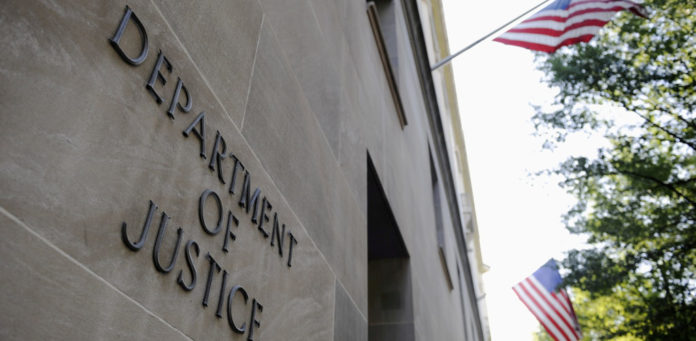
Wednesday’s announcement by the Justice Department was that nearly $57 million will be invested in the criminal justice system in support of reform efforts and advance racial equality.
The DOJ’s Office of Justice Programs will distribute the grants. They are intended to support the state and territory, local, tribal, and national levels. The Justice Department stated that a portion of the awards will go towards wrongful convictions, as well as protecting constitutional rights for defendants and prisoners.
According to the Office of Justice Programs, in accordance with Executive Order 13985 it will give priority consideration to award decisions that include projects that promote racial equality and the removal of obstacles to access and opportunity for communities that are historically marginalized or underserved.
Dave Rubin’s content is free from big tech censorship. The Rubin Report is now available.
“Equal justice cannot be achieved by itself — it requires work and a collective commitment of all of us at federal, state, and local levels to bring it to life,” stated Associate Attorney General Vanita Gopta. These investments fulfill a promise made by the Justice Department to promote public security and realize the promise of a just and fair society that respects everyone’s dignity and humanity.
An overview of 12 grants was included in the announcement. The DOJ hopes that these grants will have an impact on equity and reform efforts.
The Justice Counts Implementation Program will be awarded $9.8 million. This is the largest award by the Justice Department this week. Funds will be used to help states adopt a core set criminal justice metrics that can be used by policymakers to make budgetary and policy decisions.
The Field Initiated: Encouraging innovation program will receive eight million to help develop and implement innovative strategies to reduce crime and build trust between the justice system, the community and law enforcement. This program also focuses on overdose prevention and response.
Reimagining Justice: Testing a New Model of Community Safety Initiative hopes to use its $3 Million grant to develop innovative solutions for reducing crime in high crime neighborhoods with low-level offenders.
“Four Field Initiated awards this year are focused on case processing in the pretrial phase and include innovations such as text message reminders for court dates — we have come to expect such items from our doctor’s offices, why not the courts system,” said Vanita Gupta, Associate Attorney General, in Wednesday’s statement. These programs in New York, Texas, and New Jersey will address the underlying conditions and untreated need of those who come into the system. They will also expand diversion and deflection opportunities.
To support innocent individuals after convictions, the Upholding the Rule of Law & Preventing Wrongful Convictions program will be awarded $7.6million. The Postconviction Testing of DNA Evidence program will receive $6.5 million to cover the costs of reviewing post-conviction cases that could prove innocence.
Racial and ethnic disparities in justice system: A Study of Existing Evidence & Public Policy Implications will receive nearly $800,000. This program “conducts a comprehensive, evidence-based analysis of the existing evidence to examine whether observed racial or ethnic disparities within the justice system could be reduced through public policies.”
Four programs that aid victims will be funded by the DOJ. They will receive approximately $12.2 million to increase access to legal services, and provide additional resources for victim-serving agencies.
Gupta said that the Office for Victims of Crime has issued a grant award for the first time to better understand the service requirements of people harmed by their interactions in the criminal justice system. It will also determine if existing services can meet these needs and make recommendations for service delivery, partnerships, and tools.









